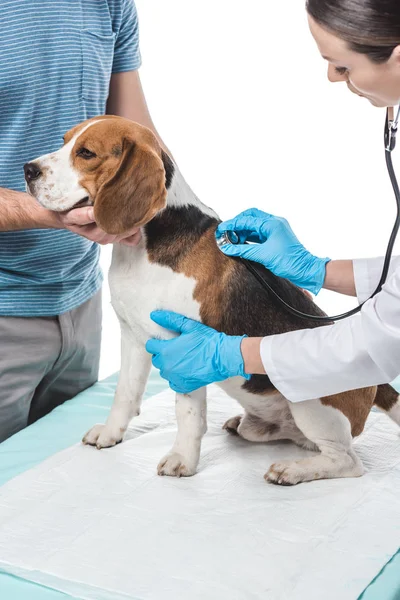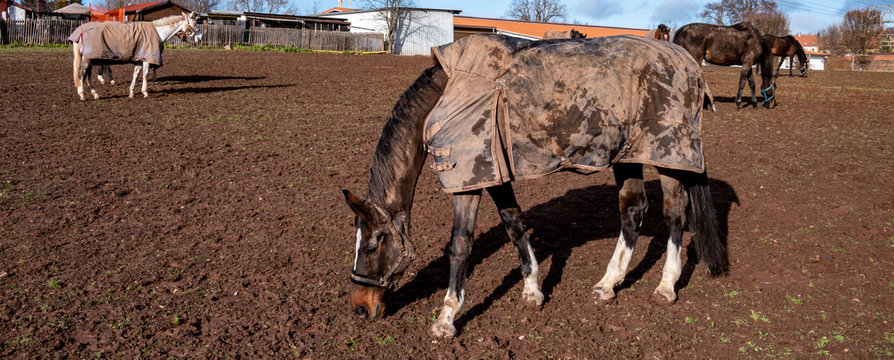When it comes to pet planning, there are a few things you need to keep in mind. First and foremost, you need to make sure that you have the time and energy to care for a pet. This means regular walks, playtime, and vet visits. Secondly, you need to be aware of the financial responsibility that comes with pet ownership. This includes food, toys, and medical care. Finally, you need to be prepared for the emotional commitment that comes with being a pet parent. This means providing love and attention on a regular basis.
If you think you can handle all of this, then pet planning might be right for you. Just remember to do your research and be prepared for everything that comes with pet ownership.
Why you should plan for your pet’s future
As a pet owner, you want what’s best for your furry friend. Naturally, you want to provide them with a comfortable home, plenty of food and toys, and all the love in the world. But have you ever thought about what will happen to your pet when you’re no longer around?
It’s important to plan for your pet’s future in case something happens to you. By creating a pet trust or designating a caregiver in your will, you can ensure that your pet will be taken care of according to your wishes—and not end up in a shelter.
A pet trust is a legal document that outlines how you want your pet to be cared for financially and logistically if something happens to you. For example, you can use a pet trust to specify who will take care of your pet and how they should be cared for. You can also use it to set aside money for your pet’s daily needs and future medical expenses.
Designating a caregiver in your will is another way to make sure that someone you trust takes care of your beloved animal companion according to your wishes. When choosing a caregiver, keep in mind that they should be willing and able to take on the responsibility of caring for your pet long-term. They should also be familiar with your pet’s personality and needs so that they can provide the best possible care.
No one likes to think about their own mortality, but it’s important to plan for your pet’s future in case something happens to you. By creating a pet trust or designating a caregiver in your will, you can rest assured knowing that your furry friend will be taken care of according to your wishes.
The benefits of pet planning
Sure, having a pet can be a lot of fun. But did you know that there are actually some pretty great benefits to pet ownership? Studies have shown that owning a pet can improve your physical health, mental well-being, and even extend your life!
Here are just a few of the ways that pet planning can improve your life:
- Owning a pet can help to reduce stress levels and blood pressure.
- Pets provide companionship and love, which can boost moods and self-esteem.
- Walking or playing with a pet encourages exercise, which is essential for good physical health.
- Caring for a pet requires responsibility and routine, both of which promote better mental health.
- Interacting with pets has been shown to increase levels of oxytocin (the “love hormone”) in the brain, leading to improved emotion regulation.
So what are you waiting for? If you’ve been considering getting a furry friend, go ahead and start planning! Your mind—and body—will thank you.
The key components of pet planning
There are a few key components to pet planning that you need to be aware of before you get started. First, you need to know what type of pet you want. There are many different types of pets, from dogs and cats to reptiles and rodents. Once you have an idea of the type of pet you want, you need to research what kind of care that particular type of animal needs. This includes things like diet, exercise, grooming, and more.
Next, you need to consider where you will get your pet from. You can adopt from a shelter or rescue organization, buy from a breeder, or even find a stray animal that needs a home. Each option has its own set of pros and cons that you should research before making a decision.
Finally, once you have your new pet home with you, there are some basic supplies that you will need in order to care for them properly. This includes food and water dishes, bedding, toys, litter or cage accessories (if applicable), and more. With proper planning and preparation, adding a new furry (or scaly) friend to your family can be exciting and rewarding!
How to create a pet trust
A pet trust is a legal arrangement that allows you to provide for the care of your pet after your death. You can use a pet trust to make sure that your pet will be taken care of by a person you trust and that your pet will have the resources it needs.
Creating a pet trust is not difficult, but there are a few things you need to do to make sure that it is valid. First, you need to choose a trustee. This person will be responsible for managing the trust and making sure that your pet is taken care of according to your wishes. You will also need to choose how much money to put into the trust and how it will be used.
Once you have chosen a trustee and decided how much money to put into the trust, you will need to create a document that outlines your wishes for the care of your pet. This document should include instructions for the trustee on how to use the money in the trust and what you want your pet’s life to be like.
After you have created the document, you will need to sign it and have it witnessed by two people who are not related to you. Once the document is signed, you should give it to the trustee so that they can start carrying out your wishes.
How to choose a pet guardian
Why planning for your pet’s future is important
It’s not uncommon for pet owners to think about what will happen to their furry friend if they pass away before them. That’s why it’s important to have a plan in place for your pet, in case something happens to you.
One way to do this is by naming a pet guardian in your will. This person would be responsible for taking care of your pet if you were no longer able to.
Choosing a pet guardian is an important decision, as you’ll want to make sure that the person you choose is someone who will love and care for your pet as much as you do. They should also be someone who is financially stable and able to take on the responsibility of caring for a pet.
When selecting a pet guardian, it’s also important to have a backup plan in case the first choice isn’t able or willing to take on the role. You may want to consider appointing more than one person as guardian, or choosing someone who lives close by so they can easily take over care of your pet if needed.
No matter who you choose as your pet guardian, it’s important that you have a plan in place so that your beloved fur friend will be taken care of if something happens to you.
How to choose a pet guardian
When it comes to choosing a pet guardian, there are a few things you’ll want to keep in mind. First, you’ll want to choose someone who is responsible and will be able to take care of your pet if something happens to you. You’ll also want to make sure that the person you choose is comfortable around animals and is willing to take on the responsibility of caring for your pet. Lastly, you’ll want to pick someone who lives close by so that they can easily take care of your pet if needed.
– taking into account your pet’s needs and personality
When choosing a pet guardian, it is important to take into account your pet’s needs and personality. Some pets require more exercise than others, and some may be more prone to anxiety or separation anxiety. It is important to choose a guardian who will be able to provide the care your pet needs and who your pet will be comfortable with. If you have multiple pets, you may also want to choose a guardian who is willing to care for all of them.
– finding someone who shares your values around pet ownership
When it comes to choosing a pet guardian, it’s important to find someone who shares your values around pet ownership. Here are a few things to keep in mind:
- Make sure they’re responsible. A good pet guardian is someone who is responsible and will take care of your pet if something happens to you.
- Choose someone who loves animals. A pet guardian should be someone who loves animals and will care for your pet like their own.
- Consider their lifestyle. A pet guardian should have a lifestyle that is compatible with owning a pet. For example, if they travel often, it might not be a good fit.
- Ask about their plans for your pet. A good pet guardian will have thought about what they would do in case of an emergency, such as if you were to pass away or become unable to care for your pet yourself.
- Make sure they’re financially stable. A pet guardian should be financially stable and able to afford the costs of caring for your pet, such as food, vet bills, and more.
What to do if you can’t care for your pet anymore
There are a number of reasons why someone might not be able to care for their pet anymore. Perhaps they have to move and can’t take their pet with them, or they might be facing financial difficulties. Whatever the reason, it’s important to plan ahead so that you know what to do if you can’t care for your pet anymore.
The first step is to try and find a new home for your pet. This can be done by reaching out to friends, family, or even posting on online classifieds websites. If you’re unable to find a new home for your pet, then you may need to consider surrendering them to a shelter or rescue organization.
Before surrendering your pet, make sure to do your research so that you can find a reputable organization that will take good care of them. Once you’ve found a suitable organization, be sure to fill out any necessary paperwork and provide any medical records that you have.
If you’re unable to find a new home for your pet or don’t want to surrender them to a shelter, then you may need to consider euthanasia. This is a difficult decision to make, but sometimes it’s the best option for the animal if they’re suffering from a terminal illness or are otherwise in pain.
If you’re considering euthanasia, be sure to consult with your veterinarian first. They will be able to provide you with more information about the procedure and help you make the best decision for your pet.
The importance of updating your pet plan
As your pet gets older, their needs will change. It’s important to keep your pet plan up-to-date so that you can provide them with the best possible care. Here are a few things to keep in mind when updating your pet plan:
- Your pet’s health needs will change as they age. Make sure to keep up with their vaccinations and routine check-ups.
- Your pet may need different types of food or supplements as they age. Consult with your veterinarian to find the best diet for your pet.
- Your pet’s exercise needs may change as they age. They may need more or less exercise depending on their health and energy levels.
- You may need to make changes to your home to accommodate your pet’s changing needs. For example, you may need to install ramps or make other accessibility changes.
- Be prepared for unexpected medical expenses by setting aside money in a pet fund or getting pet insurance.
By keeping your pet plan up-to-date, you can ensure that your furry friend always has the best possible care.
What to do if your pet passes away
If your pet passes away, it is important to plan ahead so that you can properly take care of your pet’s remains. You will need to decide whether you want to bury your pet or have them cremated. If you choose to bury your pet, you will need to find a suitable location and make sure that the grave is deep enough. You will also need to purchase a coffin or urn. If you choose to have your pet cremated, you will need to make arrangements with a pet cremation service. You will also need to decide what to do with your pet’s ashes. Once you have made all of the necessary arrangements, you should notify your veterinarian and any other relevant parties.
Planning for your pet’s medical needs
What to include in your plan
Your pet’s medical needs should be planned for just as you would plan for your own. You’ll need to take into account things like vaccinations, routine check-ups, and any potential health problems that could arise.
Include in your plan: -A list of your pet’s current medications, dosages, and how often they need to be taken -The contact information for your regular veterinarian as well as any specialists your pet sees -Your pet’s vaccination history -Any allergies or sensitivities your pet has
-A record of your pet’s past medical procedures and treatments
How to find a good veterinarian
There are a few things to consider when finding a veterinarian for your pet. You want to find someone who is reputable and has experience with the type of animal you have. Furthermore, you want to make sure that the vet you choose is affordable and within a reasonable distance from your home.
Here are a few tips on how to find a good veterinarian:
- Get recommendations from friends, family, or other pet owners. If someone you know has been happy with their vet, they’re likely to be just as good for your pet.
- Research each potential vet online. Make sure they have positive reviews and are accredited by the American Veterinary Medical Association (AVMA).
- Schedule an initial visit with the veterinarian. This will give you a chance to meet them and see how they interact with your pet. It’s also an opportunity to ask any questions about their policies or procedures.
The benefits of pet insurance
When it comes to your pet’s health, there’s no such thing as being too prepared. That’s why it’s important to have a plan in place for your pet’s medical needs – and one of the best ways to do that is with pet insurance.
Pet insurance can help you budget for unexpected veterinary expenses, and gives you peace of mind knowing that you’re covered in case of an emergency. It can also help you get access to better quality care, since many insurance plans offer discounts on things like routine check-ups, vaccinations, and more.
There are a variety of pet insurance plans available, so it’s important to do some research and find one that best fits your needs and budget. But ultimately, any plan is better than no plan at all when it comes to protecting your furry friend.
Providing for your pet in case of disability or injury
If you have a pet, it’s important to make sure that you have a plan in place in case of disability or injury. Here are some things to keep in mind:
- Make sure your pet is up to date on all vaccinations and check-ups. This will help them stay healthy and avoid any potential problems.
- If you have a disability, make sure someone else in your household is able to take care of your pet. This includes feeding, walking, and providing any necessary medical care.
- If your pet is injured, make sure you have a plan for their care. This may include taking them to the vet, or providing home care if their injury is not severe.
- Make sure you have a backup plan in case of an emergency. This could include having a friend or family member take care of your pet, or making arrangements with a pet boarding facility.
Ensuring your pet is well-cared for after you’re gone
**
What to consider when making a pet plan
When making a pet plan, there are a few things to consider to ensure your pet is well-cared for after you’re gone. First, you’ll need to decide who will take care of your pet. This person should be someone you trust and who is willing and able to take on the responsibility. You’ll also need to make sure they have the means to care for your pet, including any necessary supplies, food, and veterinary care. You should also leave instructions for your pet’s care, including any special needs or requirements. Finally, you’ll need to provide financial support for your pet’s care, either through a pet trust or by designating funds in your will.
– Who will care for your pet?
In the event that something happens to you and you are unable to care for your pet, it is important to have a plan in place for their future. This may seem like a daunting task, but by taking some time to plan ahead you can ensure that your pet will be well-cared for even if you are no longer around.
One of the most important things to consider is who will take care of your pet. This person should be someone you trust implicitly and who is willing and able to take on the responsibility. They should also be familiar with your pet’s routines and needs so that they can provide the best possible care. If you do not have anyone in mind, there are a number of organizations that can help place pets with families in need.
Once you have selected a caregiver, it is important to put your wishes in writing. This can be done through a simple letter or legally binding document depending on your preference. In this document, you should include information on how to contact the chosen caregiver as well as any specific instructions on caretaking (e.g., diet, exercise, medication). It is also advisable to include some financial provision for the care of your pet so that their new family does not have any unexpected expenses.
By taking some time to plan ahead, you can rest assured knowing that your beloved pet will be taken care of even if something happens to you.
– How will your pet be cared for?
It’s important to think about what will happen to your pet when you’re no longer around. Many people choose to include their pets in their estate planning, so that their furry friends will be taken care of after they’re gone.
There are a few things to consider when making plans for your pet. First, you’ll need to decide who will take care of your pet. This person will be responsible for feeding, walking, and providing general care for your pet. It’s important to choose someone who is reliable and who you know will be able to provide the level of care that your pet needs.
You should also make sure that this person has the financial resources necessary to care for your pet. Providing food, shelter, and medical care for a animal can be expensive, so it’s important to make sure that the person you’ve chosen can afford to take on this responsibility.
Finally, you should put these plans in writing so that there is no confusion about what you want done with your pet after you’re gone. You can include these instructions in your will or in another legal document. By taking the time to plan ahead, you can ensure that your beloved pet will be well-cared for after you’re gone.
– What financial arrangements need to be made?
It’s important to think about what will happen to your pet if something happens to you. You’ll want to make sure that your pet is well-taken care of financially, and there are a few ways to do this.
First, you can create a pet trust. This is a legal document that spells out how your pet should be cared for after you die, and it can specify things like who will take care of your pet and how much money should be set aside for their care.
Another option is to include provisions for your pet in your will. You can designate a specific person to take care of your pet, and you can also leave money specifically for their care.
Finally, you could simply make arrangements with a friend or family member ahead of time about who will take care of your pet if something happens to you. This doesn’t have to be legally binding, but it’s important to have a plan in place so that everyone knows what’s supposed to happen.
Whichever route you choose, it’s important to make sure that there is enough money set aside to cover the costs of taking care of your pet. This includes things like food, veterinary bills, and any other necessary expenses. You’ll also want to make sure that the person you’ve chosen as the caregiver is actually willing and able to take on the responsibility – it’s not fair (or safe)to spring this on someone at the last minute!
Making your pet plan
It’s important to think about what will happen to your pet when you’re no longer around to take care of them. This is especially important if you don’t have any family or close friends who are able to take on the responsibility.
There are a few things you need to consider when making a pet plan:
- Who will take care of your pet?
- How will they be taken care of?
- What happens if something happens to the person you’ve chosen to take care of your pet?
Making sure your pet is well-cared for after you’re gone is an important part of responsible pet ownership. By taking the time to plan ahead, you can ensure that your pet will be in good hands and taken care of according to your wishes.
– Choose a pet guardian
Choosing a pet guardian is an important step in ensuring your pet is well-cared for after you’re gone. There are a few things to consider when choosing a pet guardian, such as whether they’re able to care for your pet financially and emotionally, whether they have a compatible home environment for your pet, and whether they’re willing and able to commit to caring for your pet long-term. Once you’ve considered these factors, you can begin the process of choosing a pet guardian.
If you have multiple pets, you may want to choose different guardians for each animal. This will allow each animal to receive the best possible care tailored to their individual needs. You should also make sure that your chosen guardians are aware of any medical conditions or special needs your pets may have.
It’s important to have a backup plan in place in case something happens to your primary choice of guardian. Make sure you choose someone who lives nearby so they can easily take over if needed, and consider naming more than one person as guardian in case one is unable or unwilling to fulfill the role.
Once you’ve chosen a pet guardian, be sure to provide them with all the information they need about your pet, including vet records, feeding schedules, favorite toys and treats, etc. By taking the time to plan ahead, you can ensure that your beloved furry friend will be well-cared for even after you’re gone.
– Make financial arrangements
It’s important to make financial arrangements for your pet’s care in the event that something happens to you. There are a few options to consider:
- Make arrangements with a friend or family member. This person would be responsible for taking care of your pet and would be financially responsible for any expenses related to your pet’s care.
- Create a pet trust. This is a legal arrangement in which you designate someone to care for your pet and set aside money to cover the costs of care.
- Purchase pet insurance. This can help cover the costs of your pet’s care if something happens to you.
- Make arrangements with a pet sitting service or boarding facility. This would provide care for your pet if you are unable to do so yourself.
- Pre-pay for your pet’s cremation or burial. This would ensure that your pet is taken care of after you’re gone.
– Prepare your pet’s documents
It’s important to think about what will happen to your pet when you’re no longer around to take care of them. One way to help ensure your pet is well-cared for is by preparing their documents.
First, you’ll want to create a list of all the pertinent information regarding your pet, such as their name, age, breed, health history, vaccinations, and any allergies they have. You’ll also want to include contact information for your veterinarian and emergency contacts.
Next, you’ll want to choose someone who will be responsible for taking care of your pet after you’re gone. This person should be someone you trust and who is willing and able to commit to taking care of your pet. You’ll need to provide them with a copy of the list of pertinent information as well as your contact information in case they need to reach you for any reason.
Finally, make sure that all of this information is easily accessible in case something happens to you unexpectedly. You may want to keep it in a safe place or give a copy to a trusted friend or family member. By taking these steps ahead of time, you can help ensure that your pet will be well-cared for even if something happens to you.
What to do if you don’t have a pet plan
If you don’t have a pet plan in place, there are still some things you can do to ensure your pet is well-cared for after you’re gone. First, make sure to designate a responsible person to take care of your pet. This person should be someone you trust to provide your pet with the love and care they need.
Next, make sure your pet is up to date on all their vaccinations and has a microchip for identification purposes. You should also leave behind a list of your pet’s medical history and any medications they are currently taking.
Finally, make sure there is enough money set aside to cover your pet’s care. This includes things like food, vet bills, and boarding costs. You can set up a pet trust or designate a certain amount of money in your will to go towards your pet’s care.
– Find a new home for your pet
When it comes to pet planning, one of the most important things to consider is what will happen to your pet after you’re gone. If you don’t have any family or friends who are able to take care of your pet, you’ll need to make arrangements for your pet to be placed in a new home.
There are a few different options for finding a new home for your pet. You can contact a local animal shelter or rescue group and inquire about adoption or foster care options. You can also place an ad in the local newspaper or online, seeking a loving home for your pet.
Whichever option you choose, it’s important to make sure that the new family is a good fit for your pet. Be sure to interview them thoroughly and ask plenty of questions about their experience with pets, their living situation, and their plans for caring for your pet. Only entrust your pet to someone who you feel confident will provide them with a loving and nurturing home.
**
Making sure your pet is taken care of financially
No one wants to think about what will happen to their beloved pet if they pass away, but it’s important to have a plan in place in case the unthinkable happens. Here are a few things to consider when planning for your pet’s future:
- Who will take care of your pet if something happens to you? Make sure you have a trusted friend or family member who is willing and able to take on this responsibility.
- Do you have enough money set aside to cover your pet’s expenses? Veterinary bills, food, and other costs can add up quickly, so it’s important to have a financial plan in place.
- What will happen to your pet if you can no longer take care of him or her? Make sure you have a backup plan in place in case you can no longer care for your pet yourself. This could include finding a new home for your pet or making arrangements for someone else to take over their care.
Making sure your pet is taken care of financially is an important part of being a responsible pet owner. By taking the time to plan ahead, you can ensure that your pet will be well taken care of even if something happens to you.
If you’re a pet owner, then you know that pets are a big responsibility. There’s a lot to think about when it comes to keeping your furry friend happy and healthy, from food and shelter to medical care and daily exercise. This is why pet planning is so important!
A comprehensive pet plan can help you budget for your pet’s expenses, provide for their medical needs, and ensure that they’re well-cared for in case of disability or injury. It’s also crucial for making sure your pet is taken care of financially if something happens to you.
Don’t wait until it’s too late to start planning for your pet’s future. Contact us today to get started on creating a responsible, compassionate plan for the one you love.










